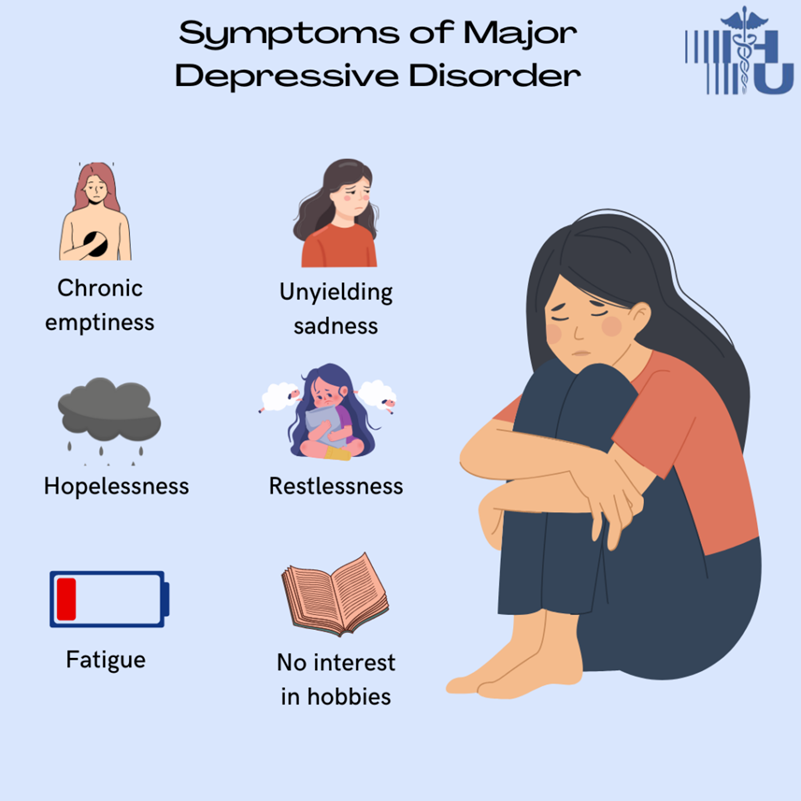A client diagnosed with major depressive disorder tells the nurse that he and his family would be better off if he were gone. Which of the following is the nurse's priority response?
"Do you really think your family would be better off without you?"
"Tell me what is happening right now."
"When did you first start feeling this way?"
"Are you thinking of harming yourself?"
The Correct Answer is D
Choice A reason:
Asking the client if they really think their family would be better off without them could potentially validate the client's feelings of worthlessness and is not a priority when immediate safety concerns are present.
Choice B reason:
While it's important to understand the client's current situation, this open-ended question may not directly address the risk of harm the client might pose to themselves. It should follow after ensuring the client's safety.
Choice C reason:
Inquiring about the onset of these feelings is part of a thorough assessment but is not the most immediate concern when a client expresses thoughts that may indicate a risk of self-harm.
Choice D reason:
This direct question addresses the immediate safety concern and is the priority response when a client indicates they may be a danger to themselves. It is essential to assess for suicidal ideation directly to take appropriate steps to ensure the client's safety.

Nursing Test Bank
Naxlex Comprehensive Predictor Exams
Related Questions
Correct Answer is A
Explanation
Choice A reason:
Walking with the client at a gradually slower pace is a therapeutic technique that can help reduce anxiety. It allows the nurse to provide a calming presence and support while also helping to decrease the client's physical agitation in a controlled manner. This approach is non-confrontational and can be very effective in managing acute anxiety symptoms.
Choice B reason:
Having a staff member escort the client to her room might seem like a reasonable option, but it could be perceived as punitive or isolating, especially if the client is not posing a risk to themselves or others. It may also escalate the client's anxiety by making them feel confined or punished.
Choice C reason:
Instructing the client to sit down and stop pacing is not advisable as it may come across as dismissive of the client's distress. It could also increase the client's anxiety by making them feel that their coping mechanism (pacing) is not acceptable, which could lead to increased agitation or resistance.
Choice D reason:
Allowing the client to pace alone until physically tired is not the best option as it does not provide any direct support or intervention from the nurse. While pacing may be a self-soothing behavior, it does not address the underlying anxiety and could potentially lead to physical exhaustion without any emotional relief.
Correct Answer is D
Explanation
Choice A reason:
Identifying the client's support systems is an important aspect of the assessment, as support systems can play a crucial role in the client's recovery. However, it is not the highest priority during the initial assessment. Support systems can provide emotional, social, and sometimes financial assistance, which can be beneficial in managing a situational crisis.
Choice B reason:
Identifying the client's coping skills is also important because it helps the nurse understand how the client typically deals with stress and crises. Coping skills are mechanisms that individuals use to manage stressful situations and can include problem-solving, seeking support, and using relaxation techniques. However, this is not the highest priority during the initial assessment.
Choice C reason:
Asking the client to identify the cause of the crisis can provide valuable information about the client's perspective and insight into the situation. Understanding the cause can help in planning appropriate interventions. However, this is not the highest priority during the initial assessment, especially if the client is not in a stable condition to discuss the crisis.
Choice D reason:
Determining if the client has psychotic thinking, is the highest priority. Psychotic thinking can include delusions, hallucinations, and disorganized thoughts, which may indicate a severe mental health condition that requires immediate attention. It is essential to assess for psychotic symptoms to ensure the safety of the client and others, as well as to determine the need for urgent psychiatric intervention.
Whether you are a student looking to ace your exams or a practicing nurse seeking to enhance your expertise , our nursing education contents will empower you with the confidence and competence to make a difference in the lives of patients and become a respected leader in the healthcare field.
Visit Naxlex, invest in your future and unlock endless possibilities with our unparalleled nursing education contents today
Report Wrong Answer on the Current Question
Do you disagree with the answer? If yes, what is your expected answer? Explain.
Kindly be descriptive with the issue you are facing.
